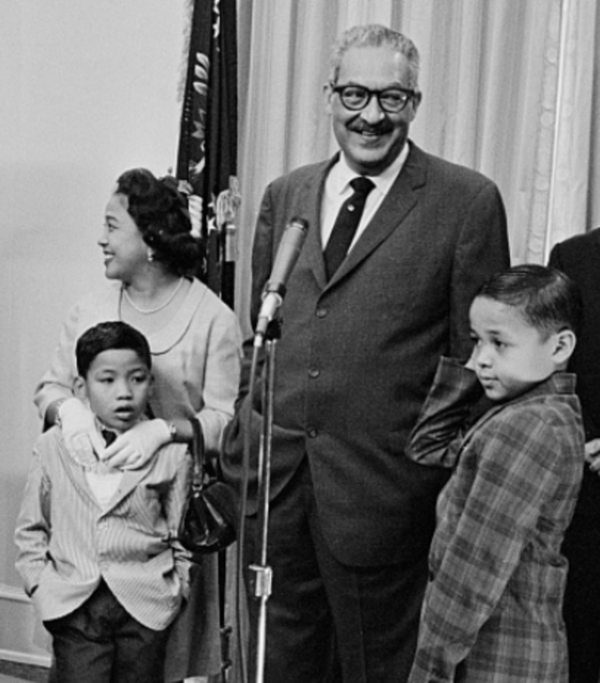On October 2, 1967, Thurgood Marshall was sworn in as a United States Supreme Court justice. His ascension to become the first African-American Supreme Court justice position stands as a momentous chapter in American legal and civil rights history. Born in Baltimore, Maryland, in 1908, Marshall grew up in an era marked by racial segregation and discrimination. His early education in a segregated school system exposed him to the injustices of the time and fueled his determination to challenge them.
Marshall’s legal journey began at Howard University School of Law, where he excelled academically, graduating magna cum laude in 1933. His association with the National Association for the Advancement of Colored People (NAACP) was a pivotal turning point in his career. Joining the NAACP’s legal team in 1936, he embarked on a lifelong mission to combat racial discrimination in all its forms.
Perhaps Marshall’s most iconic case was Brown v. Board of Education in 1954, where he argued that racially segregated public schools violated the Constitution’s equal protection clause. The Supreme Court’s unanimous decision to strike down segregation in public education represented a watershed moment in the struggle for civil rights, and it underscored Marshall’s legal prowess.
Marshall’s tireless advocacy for civil rights and his exemplary legal career caught the attention of President John F. Kennedy, who appointed him to the U.S. Court of Appeals for the Second Circuit in 1961, making Marshall the first African American to serve on a federal appeals court. Four years later, President Lyndon B. Johnson appointed him as the United States Solicitor General, another historic milestone.
The zenith of Thurgood Marshall’s career came in 1967 when President Johnson nominated him for a seat on the Supreme Court. Although he faced fierce opposition during his confirmation hearings, Marshall’s qualifications and commitment to justice prevailed. On August 30, 1967, the Senate confirmed his nomination, marking a historic moment as he became the first African American to sit on the highest court in the land.
During his tenure on the Supreme Court, which spanned 24 years, Marshall consistently championed civil rights, individual liberties, and equal protection under the law. His decisions and dissents, often characterized by a commitment to justice and a deep understanding of the Constitution’s principles, have left a lasting legacy.
Thurgood Marshall’s journey from a segregated Baltimore school to the hallowed halls of the Supreme Court is a testament to his unwavering dedication to the principles of justice and equality. His historic appointment as the first African-American Supreme Court justice underscored the transformative power of legal advocacy and the enduring impact of individuals who devote their lives to the pursuit of civil rights and justice for all.






